The Cheongju University was founded by
Kim Won-keun (1886~1965) and his brother, Kim Young-keun (1888~1976). The forerunner was Cheongseok Academic Foundation, established in 1924. The two founding brothers had gone through various hardships and, through blood, sweat and tears, had made a great fortune. They poured their fortune into fostering the young generation. They were truly educational pioneers.
The brothers led the way in education, with the firm belief that in order to regain independence from Japan Korea's people needed power, and that education was the solution to give power to the Korean people.
Their strong beliefs about education led to the establishment of the university after Korea regained independence in 1945. Today, there are 7 schools and universities, from elementary to university level, that were developed out of/through/by the Chungsuk Academic Foundation.
With this founding philosophy in mind, Cheongju University is strongly committed to maintaining educational policies such as patriotism, diligence, self-reliance, volunteerism and lawfulness in order to contribute to the development of the national culture, foster humanitarianism and contribute to human prosperity.
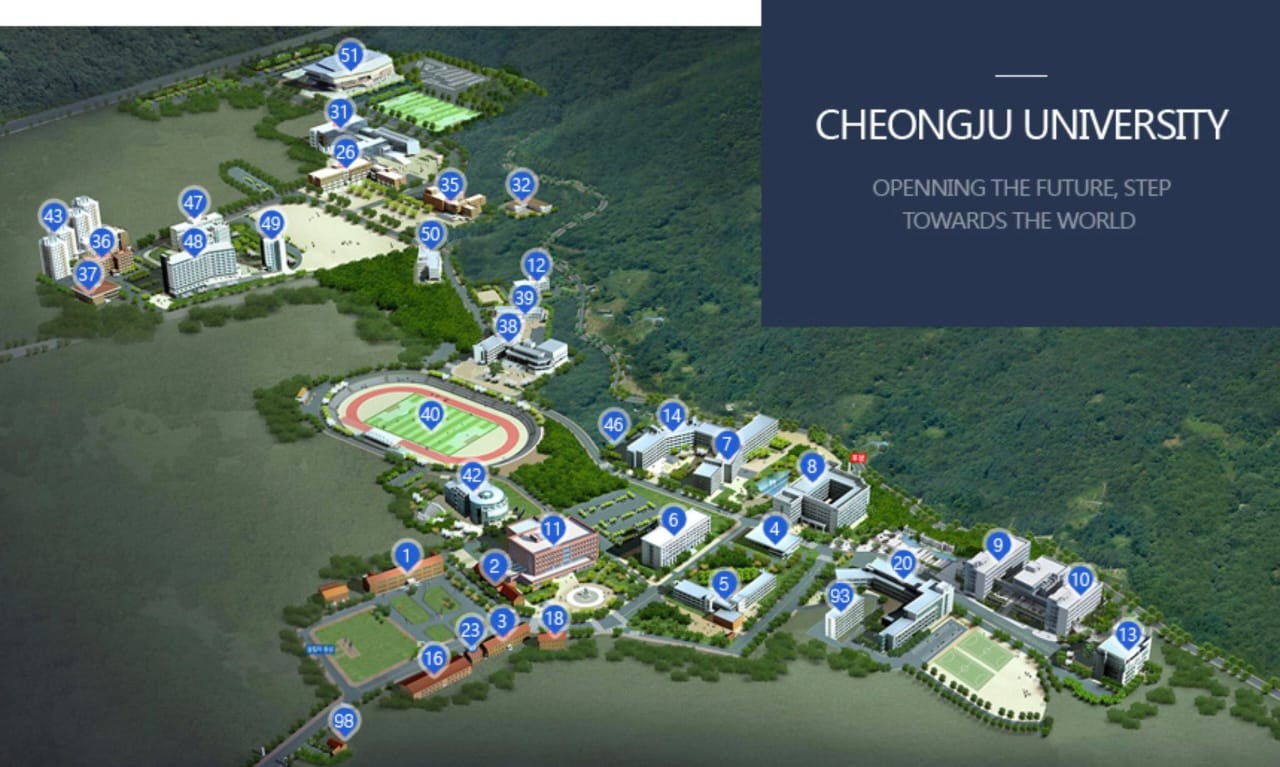
In his message the President of the most prestigious university in the central region of Korea, Mr. Yoon Bae ki said that “history means the creation of new values.
The history of Cheongju University, the oldest university in the Southern Hangang River region, has been a journey of discovering new meaning in the nation and regional society, as well as one of creating new values. The university was founded based on a love for the people and the educational philosophy of saving the country through education. Our alumni, who are our pride and joy, are active all over the world, dedicating themselves to the development of the global community. Also, our university is in the midland region making it close to Seoul, and the campus itself is in the heart of Cheongju, and harmonizes well with the natural scenery of the guardian mountain of Cheongju, Uamsan Mountain, and forms a beautiful true forest. Our academic traditions of building bridges of cooperation with distinguished universities from around the world, and holding tradition and culture dear, will be even more valuable for students living in the 21st century, the era of informatization. I believe that a society of loving care develops a university, and that by offering passionate and sincere education, the university can further develop the society.”
All members of Cheonju University do their best to enable young students to create a future for themselves here at Uam Campus, a harmony of green forest and advanced science, and tradition and global culture.
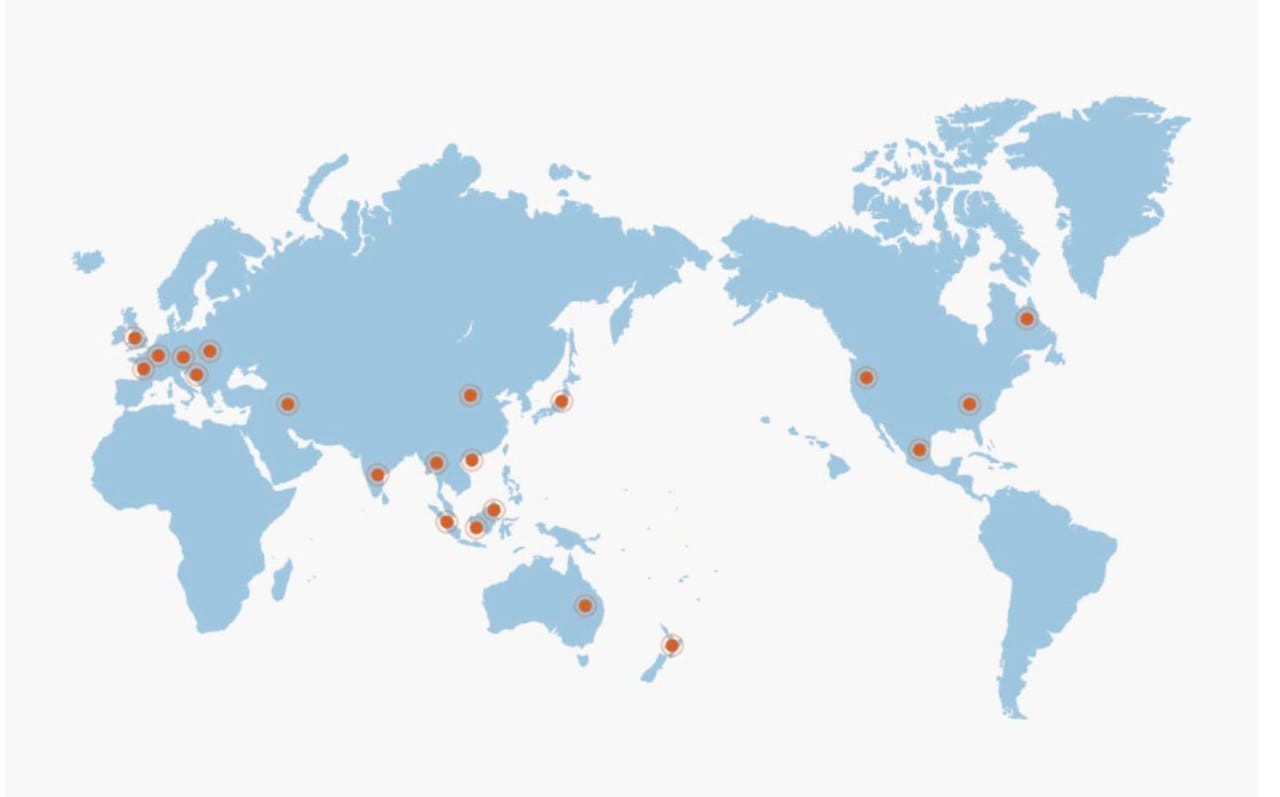
As I was leaving Seoul, I got the chance to meet two icons of the university’s staff; Cheol Ho Yang, , Ph.D. Science of Public Administration, Professor, Department of Military Studies, Brigadier General, Army (Rt.), and Soon Il, Kim, Ph.D. In Literature, Office of International Affairs, Korean Language Education Center Manager, Cheong University.
They both talked about their intention to attract international students from the Middle East and Africa. Dr Cheol Ho Yang said that the university has partnerships with a hundred universities in China and mor than 60 universities in United States of America, Canada, New Zealand, Australia, Germany, United Kingdom, France, Hungary, Russia, Belarus, Japan, Taiwan, Vietnam, Indonesia, Philippines, Cambodia, Kyrgyzstan, Mongolia, Nigeria, Thailand, Algeria, Mexico, Azerbaijan, Romania, Armenia, Uzbekistan, Kazakhstan and Peru:
“We have the goal of seeking the truth and promoting virtue based on the university ideal of “Let's create an advanced world of culture based on practical learning.” And we have the goal of cultivating Creative Explorer that practice public duties, Moral Citizen, and Practical Volunteer.”
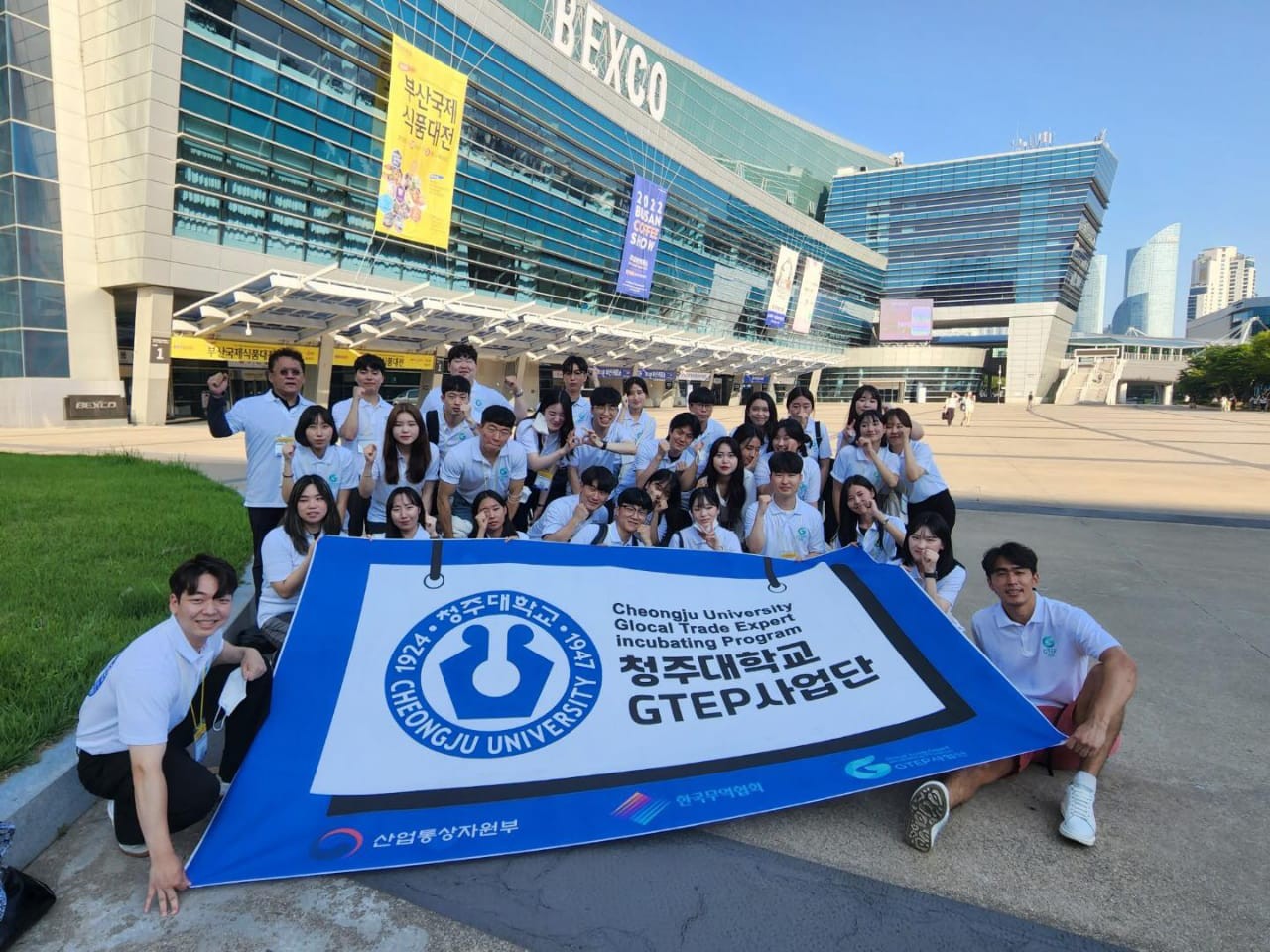
Talking of the university’s educational goals, he said that “we seek the truth, as(Creative Explorer), by viewing objects and phenomenon from various perspectives based on a wide range of cultural backgrounds. Furthering Professional Knowledge: Understand the basic principles and practical application methods of one's major to discover connections to other fields of study.Cultivation of Creative Adaptation: Knowledge and information are creatively applied to resolve complex problems and better adapt to a society of globalization and informatization.
The Moral Citizen
The university develops a moral compass that respects human dignity and equality based on conscience and good faith.Promotion of Cultural Knowledge: Accumulate knowledge to accommodate diverse cultures, and have an eye for beauty with regards to objects and phenomenon.Cultivation of a Mindset of a Democratic Citizen: Comply with law and order, respect others’ opinions, and have a cooperative spirit and a sense of responsibility.
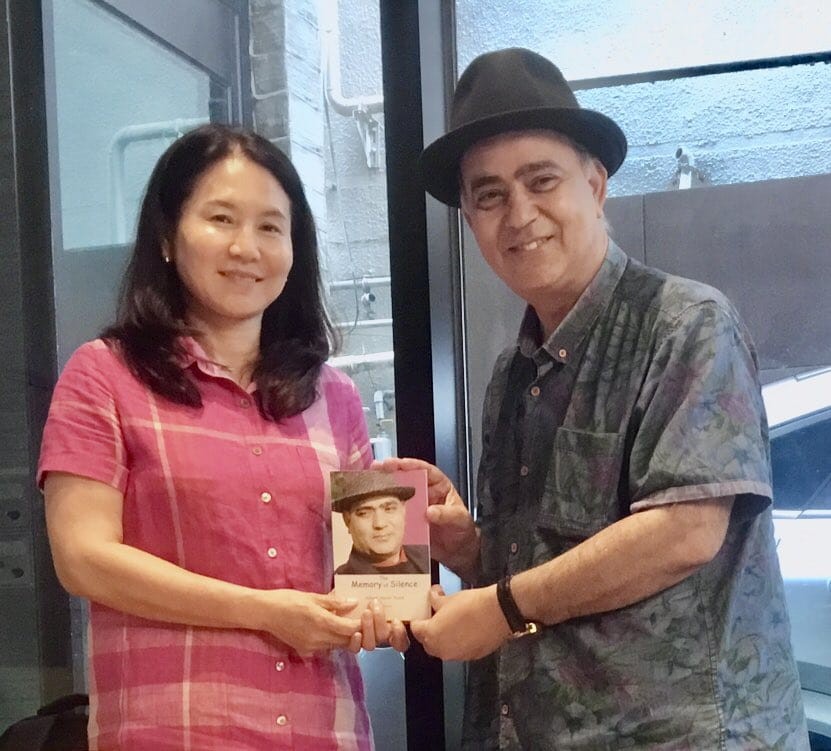
Building of Moral Character: Develop a moral compass that respects human dignity and equality based on conscience and good faith.Promotion of Cultural Knowledge: Accumulate knowledge to accommodate diverse cultures, and have an eye for beauty with regards to objects and phenomenon.Cultivation of a Mindset of a Democratic Citizen: Comply with law and order, respect others’ opinions, and have a cooperative spirit and a sense of responsibility.
The brothers who founded the university (the late Kim Won-keun and Kim Young-keun) were self-made men who made great contributions as educators in Korea. Although the brothers were unable to receive a formal education due to the hard times during Japanese colonial period, they realized the importance of Korea as they witnessed the plight of the country while experiencing many hardships in their lives, and invested all the assets they had amassed through commercial activities into establishing the university, fueled by the determination to protect our nation through education.
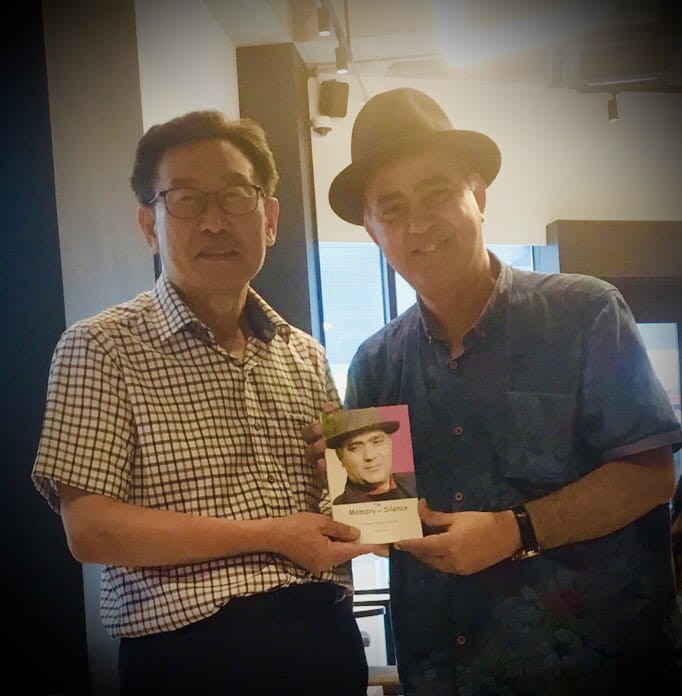
Dr Kim said that language is the root of all of culture. At the same time, it is a spiritual container which all language speakers have so the study of our language gives us a chance to develop. By learning comparative studies of Korean language and Korean literature, we can attain a more desirable future for Korean language and literature. The doctorate degree investigates in more detail what you would normally brush upon when studying a master's course. A Major in Korean language and literature covers, national language, classic literature, contemporary literature, and increases the level of granularity in the study. Therefore, rather than a common quest for knowledge these areas of inquiry are special. The object of these classes is to investigate our literary system more delicately.
I got the chance to give copies of my poetry collection, The Memory of Silence to the Korean professor. I also thanked Ms. Cherry, KEDA Media consultant, who gave me the opportunity to share the Cheongju University’s staff on celebrating its 100th anniversary.
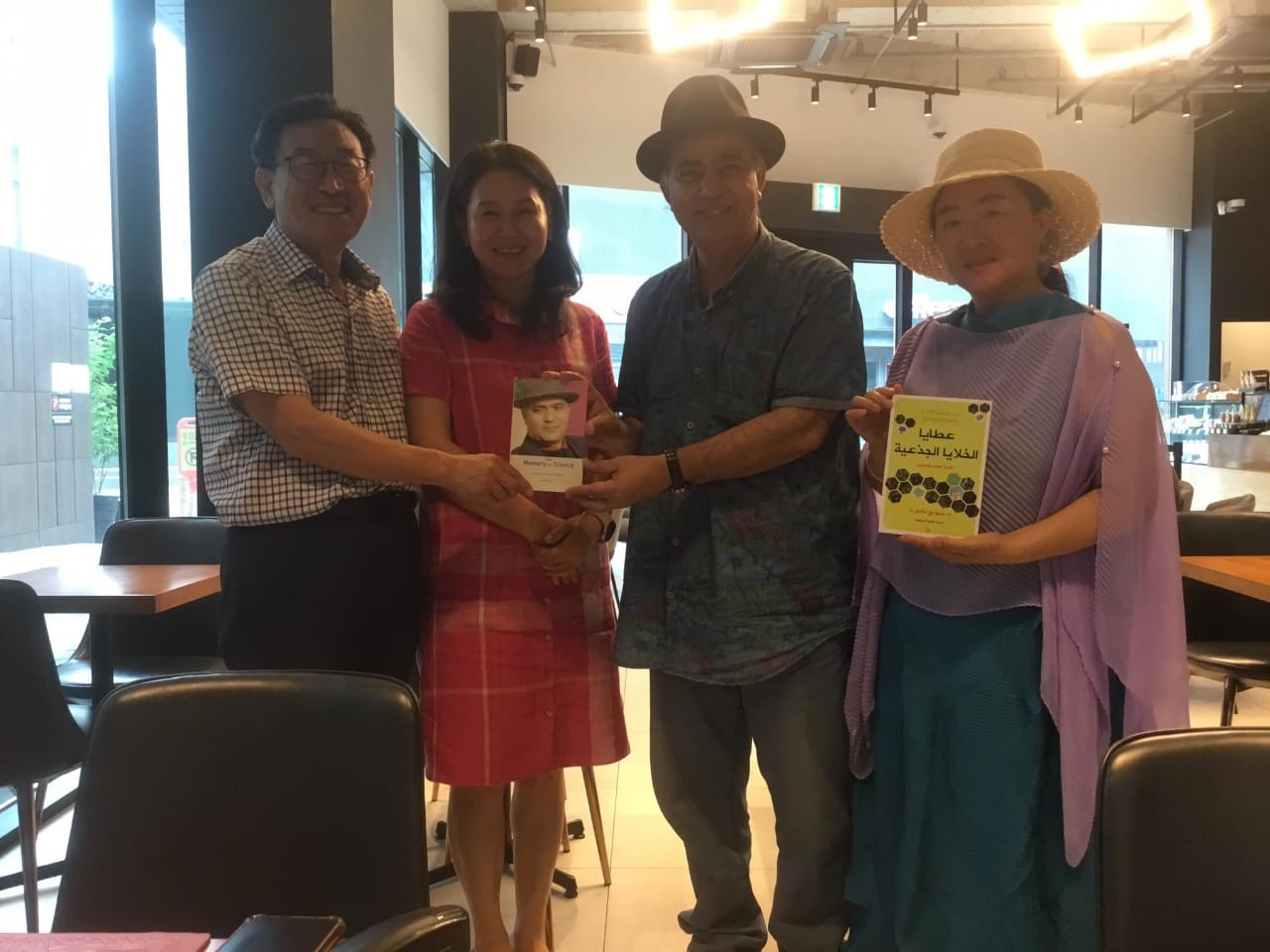
Comments